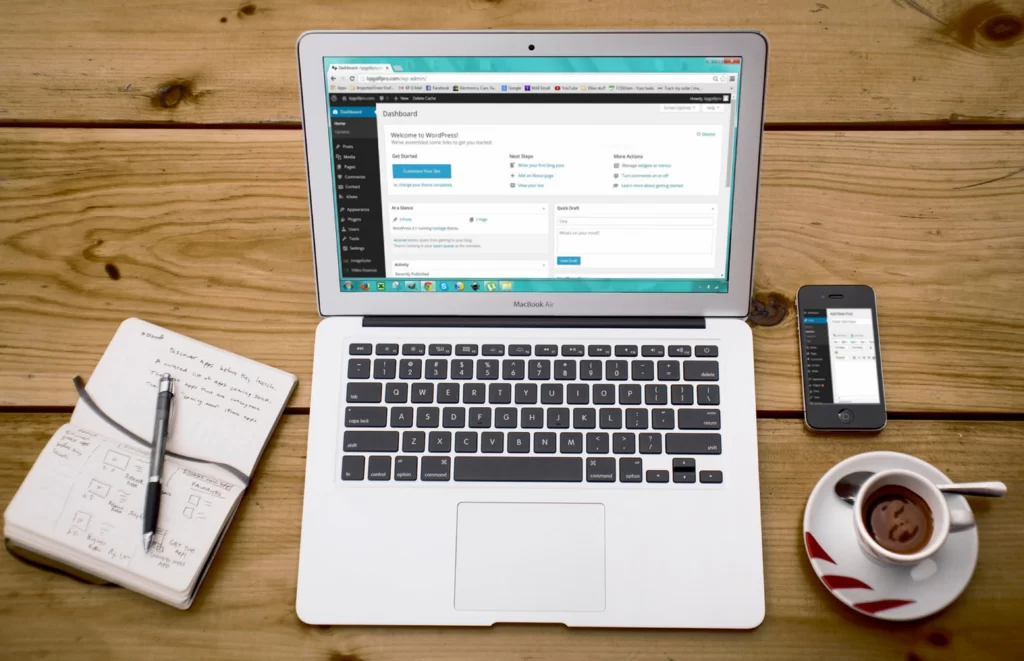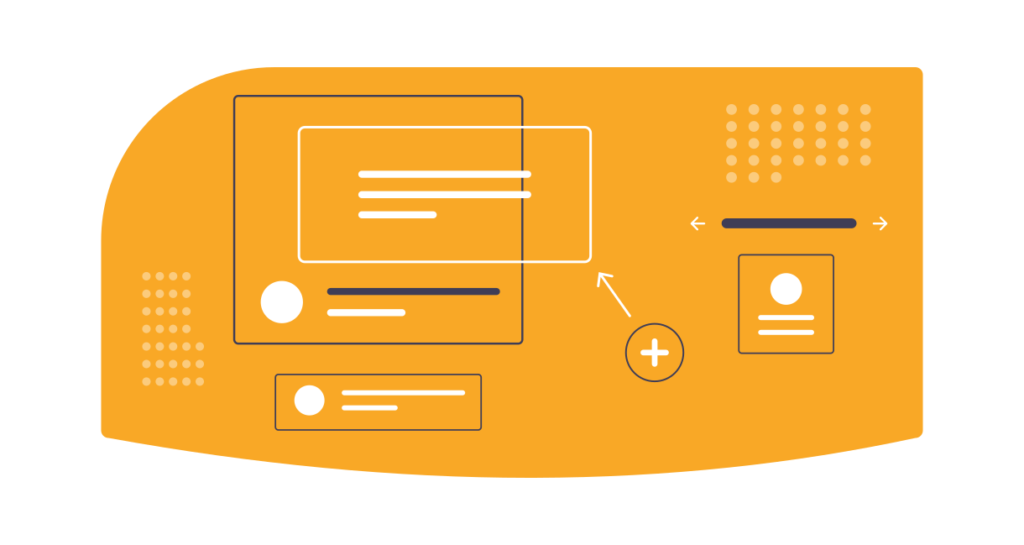Are you a job seeker? In today’s job market, it’s not enough to just have a resume and cover letter. You need to stand out from the competition, and one way to do that is to have a personal website. But where do you start? This guide will show you why and how to create a personal website that will make you look like a true professional. Also, last but not least, how to promote it.
1. Why you as a job seeker should have a personal website
A personal website is a great way to showcase your skills and experience to potential employers.
By creating a personal website, you can highlight your strengths and accomplishments, and demonstrate why you would be the perfect candidate for the job. In addition, a personal website can help you stand out from the competition, and show potential employers that you are a well-rounded individual with a professional online presence.
A personal website can be a great asset when you’re looking to stand out from the crowd.
It can help you make a good first impression and give you an edge over other candidates.
Your personal website can be a great way to show off your personality and give employers a taste of who you are. It’s also a great way to showcase your skills and experience.
If you’re not sure where to start, there are plenty of templates and tutorials available online. And if you need some inspiration, take a look at some of the best personal websites out there.
A personal website can be a great way to keep your resume and portfolio up-to-date.
By having an online presence, you can make it easy for potential employers or clients to find your most recent work. Plus, you can use your personal website to showcase your personality and highlight your unique skills and experience.
If you’re not sure where to start, there are plenty of website builders and templates available online. Once you have a basic website up and running, you can start adding your resume, portfolio, and other relevant information. Updating your personal website regularly will ensure that it remains an accurate representation of your skills and experience.
A personal website can help you stay organized and keep track of your job search.
By keeping all your information in one place, you can easily refer back to it when you need to. This can be a great way to keep track of your progress and see how far you’ve come.
A personal website can also help you stay on top of your job search. By posting regular updates, you can let potential employers know that you’re still interested in finding a job. This can help you stay ahead of the competition and make sure you’re the first one they think of when a position opens up.
If you’re looking for a job, having a personal website is a great way to make sure you stay organized and on top of your search.
A personal website can be a great way to showcase your personality and build your brand.
By including a blog on your personal website, you can share your thoughts and experiences with the world, and build a following of loyal readers.
If you’re looking to build your personal brand, a personal website is a great way to get started. By sharing your story and your unique perspective, you can attract like-minded individuals to your site, and build a community of followers.
A personal website can also be a great way to showcase your personality. By sharing your interests, hobbies, and thoughts on life, you can give visitors a glimpse into who you are, and what makes you tick.
If you’re looking to build your personal brand or showcase your personality, a personal website is a great way to get started. By sharing your story and your unique perspective, you can attract like-minded individuals to your site, and build a community of followers.
2. How to start a personal website as a job seeker
A personal website is a great way to showcase your skills and experience to potential employers. It can also be a great way to connect with other professionals in your field. Here are some tips to help you get started:
Choose a domain name that is professional and easy to remember.
Your personal website is your online home. It’s a place where you can share your thoughts, your work, and your story with the world. So it’s important to choose a domain name that is professional and easy to remember.
Here are a few tips to help you choose the perfect domain name for your personal website:
1. Keep it short and sweet. A domain name that is too long or difficult to spell will be hard for people to remember.
2. Make it relevant to your brand. Choose a domain name that reflects who you are and what you do.
3. Avoid using hyphens. Hyphens can make your domain name look unprofessional and can be difficult to remember.
4. Use a .com extension. .com is the most popular and recognizable extension, so it’s the best choice for your personal website.
5. Make sure it’s available. Before you settle on a domain name, do a quick search to make sure it’s available.
With these tips in mind, you’re sure to choose a domain name for your personal website that is both professional and easy to remember.
Use a content management system like WordPress or Joomla to make creating and updating your website easy.

There are many benefits to using a content management system (CMS) like WordPress.org, WordPress.com, or Joomla to create and update your personal website. You can download the desktop version of the CMS from WordPress.org where as WordPress.com hosts the cloud version of the application. The two websites are owned by different companies. Perhaps the most obvious benefit is that it is much easier and faster to create and update your website using a CMS than it would be to do so manually.
Another big benefit of using a CMS is that it allows you to easily change the appearance of your website without having to edit any of the actual content. This is because most CMSs come with a wide variety of themes that you can install with just a few clicks. So, if you get tired of the way your website looks, you can easily change it up without having to redo all of your content.
Finally, using a CMS can help you keep your website more organized and easy to navigate. This is because most CMSs come with built-in tools for creating menus and navigation bars. This can save you a lot of time and effort when it comes to creating and updating your website.
Use Low-Code / No-Code online platforms
There are a number of different online website builders that allow you to create and update your personal website without having to write any code. These low-code online website builders make it easy to create a website without any prior experience or knowledge of web development.
One of the most popular low-code online website builders is Wix.com. Wix.com allows you to create a website using a drag-and-drop interface. You can add text, images, and other elements to your website without having to write any code. Wix.com also offers a wide range of templates that you can use to create your website.
Another popular low-code online website builder is Weebly.com. Weebly.com also offers a drag-and-drop interface for creating your website. Weebly.com also offers a number of different templates that you can use to create your website.
If you are looking for a more powerful low-code online website builder, you may want to consider using WordPress. WordPress is a popular content management system that allows you to create a website without having to write any code. WordPress also offers a wide range of plugins and themes that you can use to customize your website.
There are a number of different low-code online website builders available. These website builders make it easy to create a website without any prior experience or knowledge of web development.
Choose a simple, clean design for your website.

A simple, clean design is essential for your personal website if you want it to be effective in your job search. It is important to remember that your website is a reflection of you and your professional brand. Therefore, you want to make sure that the design of your website is clean, professional, and easy to navigate.
A simple, clean design will help you to stand out from the crowd. With so many job seekers competing for the attention of employers, it is important to have a website that is eye-catching and easy to navigate. A simple, clean design will help you to achieve this.
A simple, clean design will also help you to save time and money. Creating a complex website with a lot of bells and whistles can be time-consuming and expensive. You can avoid these costly and time-consuming mistakes by keeping your design simple.
Finally, a simple, clean design will help you to be taken seriously as a job seeker. If your website is cluttered and difficult to navigate, employers may question your professionalism and commitment to the job search process. By having a simple, clean design, you can show employers that you are a serious job seeker who is organized and prepared.
Use clear and concise language to describe your skills and experience.
Include a contact form so potential employers can easily get in touch with you. Creating a personal website is a great way to make yourself stand out from the competition.
By following these tips, you can easily create a professional and polished website that will help you land the job you want.
3. What to include on your personal website
As a job seeker, your personal website is your opportunity to control the narrative and show employers who you are, what you can do, and why they should hire you. Here are some key things to include on your personal website:
1. A clear and concise summary of who you are and what you do.
2. A professional headshot or photo.
3. A list of your skills and accomplishments.
4. Links to your professional social media profiles.
5. A portfolio of your work, if applicable.
6. Contact information, so employers can easily get in touch with you.
By including these key elements on your personal website, you’ll be able to give employers a strong sense of who you are and what you can do. And, you’ll be one step closer to landing your dream job.
4. How to promote your personal website as a job seeker
There are a few key ways to promote your personal website if you’re a job seeker. First, make sure your website is easily discoverable by including keywords in the title and throughout the site content. You can also promote your website through social media, forums, and by guest blogging on other websites. Additionally, consider paid advertising to reach a larger audience. Finally, make sure your website is high quality and provides value to visitors so that they’ll want to come back and share it with others.
Conclusion:
A personal website can be a great asset for job seekers. It allows you to control the narrative and show employers who you are, what you can do, and why they should hire you. Include a clear summary of who you are, a professional photo, a list of your skills and accomplishments, and contact information. You can promote your website by including keywords in the title and throughout the site content, guest blogging on other websites, and through paid advertising. Get started with your personal website.
Best wishes for your dream job.


